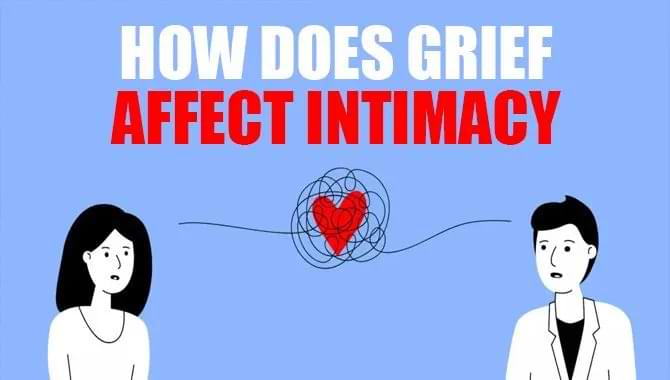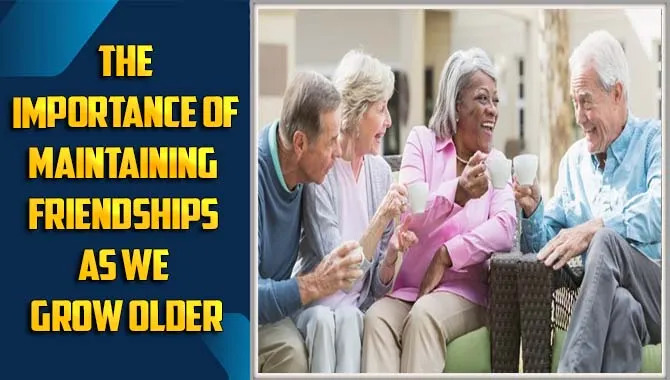Discovering the best love language quotes can unlock deeper understanding and stronger connections in all your relationships. These perfect phrases illuminate how appreciation and affection are expressed and received, helping you communicate love more effectively with friends, partners, and family.
Ever feel like you and your partner, or even a close friend, are speaking different emotional languages? You might be showing love in ways that feel natural to you, but they just don’t seem to land. It’s a common hiccup in relationships, and it can lead to frustration and feeling misunderstood. But what if there was a simpler way to understand how the people we care about feel loved? That’s where embracing love languages comes in, and great quotes can be your guide. They offer powerful insights that are easy to grasp and immediately applicable. Let’s explore some of the best love language quotes and unlock the secrets to communicating your affection more clearly and effectively, strengthening every bond you share.
Understanding Love Languages: More Than Just Words
The concept of “love languages” was popularized by Dr. Gary Chapman in his book, The 5 Love Languages: The Secret to Love That Lasts. He identified five primary ways people give and receive love: Words of Affirmation, Acts of Service, Receiving Gifts, Quality Time, and Physical Touch. The idea is that we all have a primary love language, and when our partner or loved one speaks that language, we feel most loved and appreciated. Conversely, if they speak a different language, their efforts might not be as impactful, even if well-intentioned.
Think of it like this: if your primary language is Spanish, and someone keeps speaking to you in French, you might understand a few words, but you won’t truly connect or grasp the depth of what they’re trying to say. Learning to speak your loved ones’ primary love language is like learning a new dialect of affection. It’s about putting in the effort to show love in a way that resonates deeply with them, not just in a way that feels easy or natural to you.
These love languages aren’t just for romantic partners; they apply to friendships, family relationships, and even workplace dynamics. Understanding them helps bridge communication gaps, reduce conflict, and foster a deeper sense of connection and appreciation.
The Power of Words: Love Language Quotes on Affirmation
Words of Affirmation is all about expressing affection through spoken or written compliments, encouragement, and appreciation. For those whose primary love language is Words of Affirmation, kind, encouraging, and validating words are deeply meaningful. Hearing “I love you,” “You’re doing a great job,” or “I really appreciate you” can make a significant difference in how loved they feel.
Quotes can beautifully encapsulate the essence of this love language:
- “Kind words go a long way. They can lift someone up, encourage them, and make them feel deeply valued.”
- “Affirmation isn’t just saying nice things; it’s seeing the good in someone and articulating it, letting them know they are truly seen and appreciated.”
- “The words we choose to express love can be the most powerful tools in our relationship toolbox. Make them count.”
- “A heartfelt compliment, a note of encouragement, or a simple ‘thank you’ can build a bridge of connection that lasts.”
- “Don’t underestimate the power of your voice in expressing love. Words of affirmation are the bedrock of mutual respect and admiration.”
For men or women whose primary language is Words of Affirmation, hearing these types of expressions feels like sunlight. It builds their confidence, reassures them of their worth, and makes them feel cherished and understood. On the flip side, harsh words or criticism can be incredibly damaging to their emotional well-being.
Actions Speak Louder: Love Language Quotes on Acts of Service
Acts of Service involve doing things for your loved one that you know they would like you to do. This could be anything from doing the dishes, taking out the trash, running errands, or helping with a project. For someone who speaks this love language, these actions are concrete expressions of love and support. They feel cared for when you go out of your way to ease their burdens or make their life easier.
Here are some quotes that capture this practical form of love:
- “Love isn’t just a feeling; it’s a verb. It’s about doing things that show you care, even the small, everyday tasks.”
- “When someone takes the weight off your shoulders, that’s love in action. It’s a tangible way of saying, ‘I’ve got your back.'”
- “The best way to show love might not be with grand gestures, but with consistent, thoughtful actions that lighten life’s load.”
- “Helping hands and willing hearts are powerful expressions of affection. They speak volumes without a single word needing to be said.”
- “Service is love made visible. It’s about demonstrating commitment and care through practical support and effort.”
When you fulfill an Act of Service for someone whose primary language it is, you are essentially saying, “I love you and I want to make your life better.” Conversely, if tasks are left undone or you’re seen as lazy or unhelpful, it can feel like a significant rejection of their love needs.
Gifts from the Heart: Love Language Quotes on Receiving Gifts
For people whose primary love language is Receiving Gifts, a thoughtful gift is a tangible symbol of love. It’s not about materialism; it’s about the thought and effort that went into selecting the gift. The gift represents that you were thinking of them, you know their preferences, and you wanted to bring them joy. The size or cost of the gift is often secondary to the sentiment behind it.
These quotes highlight the sentimentality of this love language:
- “A gift isn’t always about money; it’s about conveying a message: ‘I was thinking of you.'”
- “The most meaningful gifts are those that show you truly know and understand the person you’re giving them to.”
- “Sometimes, the smallest token from someone you love can feel like the greatest treasure because it carries their heart with it.”
- “Receiving a gift is like receiving a hug in physical form – a constant reminder of connection and care.”
- “It’s not the material value that makes a gift memorable, but the love and intention woven into its selection.”
For someone who values gifts, seeing their partner or friend remember an anniversary, birthday, or even just bring home a small surprise can feel incredibly validating. They feel remembered and important. A missed occasion or a thoughtless gift can feel like a profound lack of care.
The Gift of Presence: Love Language Quotes on Quality Time
Quality Time is about giving someone your undivided attention. It’s about being present and engaged, listening actively, and sharing experiences. When someone’s primary love language is Quality Time, they need to feel that you prioritize them and are truly invested in spending meaningful time together. This means putting away distractions like phones and engaging in conversation or shared activities.
These quotes emphasize the importance of focused attention:
- “In a world of constant distractions, giving someone your full attention is one of the most profound gifts you can offer.”
- “Quality time isn’t just about being together; it’s about being together, present and engaged, creating shared memories.”
- “Listening with your ears is good; listening with your whole being is the heart of quality time.”
- “The greatest gift we can give someone is our time and our undivided attention. It says, ‘You are worth my focus.'”
- “True connection blossoms when we are fully present with each other, sharing both the quiet moments and the lively conversations.”
When you dedicate focused time to someone who values Quality Time, you are communicating that they are important and that your relationship with them matters deeply. Forgetting or consistently being distracted during your time together can make them feel unimportant and overlooked.
The Language of Touch: Love Language Quotes on Physical Touch
Physical Touch is about expressing affection through bodily contact. This doesn’t just mean intimacy; it includes holding hands, hugging, kissing, patting on the back, or sitting close to one another. For individuals whose primary love language is Physical Touch, these gestures are incredibly important for feeling connected and secure in a relationship.
Here are some quotes on the impact of touch:
- “A simple touch can convey more love and reassurance than a thousand words ever could.”
- “Physical touch is a powerful communicator of closeness, comfort, and belonging. It anchors us in the present moment.”
- “The warmth of a hand, the comfort of a hug – these are the silent affirmations that say, ‘You are not alone, and you are loved.'”
- “When words fail, touch can speak volumes, bridging emotional distances and fostering a sense of deep intimacy.”
- “The gentle caress, the firm handshake, the comforting embrace – all are vital expressions for those who feel love most profoundly through touch.”
For someone whose love language is Physical Touch, appropriate and loving touch creates a sense of safety, connection, and affection. Neglecting this form of affection or engaging in harsh or unwanted physical contact can be deeply damaging.
Applying Love Languages: A Practical Guide
Now that we’ve explored the five love languages and some insightful quotes, how do we put this into practice? It starts with self-awareness and observation.
1. Discover Your Own Love Language
Before you can speak to others, it’s important to know your own primary love language. Ask yourself:
- What do I request most often from my partner or loved ones?
- What do I complain about most when it comes to how they treat me?
- What makes me feel the most loved and appreciated?
Taking an online quiz can also be helpful. The official 5 Love Languages quiz is a great starting point.
2. Identify Your Loved One’s Love Language
This requires observation and communication:
- Observe: How do they naturally express love to others? Often, we express love the way we prefer to receive it. What do they complain about most often regarding your interactions?
- Listen: What do they request from you? Do they often say “I wish we could spend more time together” (Quality Time) or “I wish you’d help me out more” (Acts of Service)?
- Ask: Have an open conversation! You can say, “I’ve been learning about love languages, and I’m curious, what makes you feel most loved by me?”
3. Speak Their Language Proactively
Once you know their primary love language, make a conscious effort to “speak” it regularly. It’s not about mastering a new technique overnight, but about intentional small steps.
Here’s a quick reference table:
| Love Language | How to Speak It | What to Avoid |
|---|---|---|
| Words of Affirmation | Give compliments, express appreciation, send encouraging texts, write notes. | Criticism, insults, harsh words, neglecting to verbalize appreciation. |
| Acts of Service | Help with chores, run errands, complete tasks they dislike, offer practical support. | Laziness, broken commitments, creating more work, neglecting responsibilities. |
| Receiving Gifts | Give thoughtful gifts (big or small), surprise them, remember special occasions. | Forgetting special occasions, giving thoughtless or impersonal gifts. |
| Quality Time | Give undivided attention, engage in meaningful conversation, plan dates or outings, actively listen. | Distractions (phone), postponing time together, not listening, shallow conversations. |
| Physical Touch | Hold hands, hug, kiss, sit close, offer comforting touches. | Physical neglect, abusive or rough touch, withholding affection. |
4. Don’t Forget Your Own Language
It’s equally as important for your loved ones to know and speak your primary love language. Share your needs respectfully. A healthy relationship involves both giving and receiving love effectively.
5. Be Patient and Persistent
Learning to speak a different love language takes practice. There will be missteps and times when your efforts aren’t perfectly received. The key is to keep trying, learn from mistakes, and maintain an open dialogue about your emotional needs.
Love Language Quotes in Action: Real-Life Scenarios
Let’s see how these insights and quotes can play out:
Scenario 1: For the Partner with Words of Affirmation
Mark has a rough day at work. His partner, Sarah, notices he’s quiet. Instead of just asking what’s wrong, she reminds him, “You handled that difficult client meeting with so much grace today, Mark. I was really impressed by your professionalism. You deserve a relaxing evening.”
This directly addresses his need for verbal validation, making him feel seen and appreciated for his efforts.
Scenario 2: For the Friend with Acts of Service
Liam’s friend, Chloe, is overwhelmed with moving. Liam remembers that Chloe’s love language is Acts of Service. He texts her, “Hey Chloe, instead of just sending good vibes, I’m free Saturday morning. Let me know what time works best, and I’ll head over to help you pack or move boxes. No need to worry about feeding me, I’ll grab something on the way!”
His practical offer, without being asked, shows he cares and wants to lighten her load. This is far more impactful than a simple “Let me know if you need anything.”
Scenario 3: For the Family Member with Quality Time
A father, David, realizes his daughter, Emily (a young adult), often feels disconnected. He initiates a weekly routine: “Em, how about we grab coffee or a quick lunch every Sunday afternoon, just us? No phones, no distractions, just catching up. I miss our chats.”
This dedicated, focused time tells Emily she is a priority and that her father cherishes their connection.
FAQs About Love Languages and Quotes
Q1: What are the five love languages?
A1: The five love languages are Words of Affirmation, Acts of Service, Receiving Gifts, Quality Time, and Physical Touch. They are different ways people express and experience love.
Q2: Can my love language change over time?
A2: While you typically have a primary love language, it can sometimes shift depending on life circumstances or stages. It’s healthy to re-evaluate periodically.
Q3: How can these love language quotes help my relationship?
A3: Love language quotes offer concise wisdom that can deepen your understanding of how to effectively show love. They serve as reminders and inspiration to speak your loved one’s emotional language more consistently.
Q4: Is it selfish to ask for my love language to be spoken?
A4: No, it’s not selfish to communicate your needs. Healthy relationships require both partners to understand and meet each other’s emotional needs. Expressing your primary love language respectfully is crucial for connection.
Q5: What if my partner and I have completely different love languages?
A5: Different love languages are normal! The key is recognition and effort. Since you know their primary language, you can consciously work to speak it, and they can do the same for you. It strengthens your bond through intentionality.
Q6: Do love languages only apply to romantic relationships?
A6: Absolutely not. Love languages are fundamental to all types of relationships, including friendships, family bonds, and even how we offer support in professional settings. Understanding how others feel appreciated is key to better interactions.
Q7: How can I find out my partner’s love language if they don’t want to take a quiz?
A7: Observe their behavior: what do they often ask for? What do they complain about the most? How do they naturally express love to others? These clues can often reveal their primary love language without a formal quiz.
Conclusion: Building Stronger Bonds Through Intentional Love
Understanding and applying the principles of love languages, guided by insightful quotes, is one of the most effective ways to nurture and strengthen any relationship. It moves beyond guesswork and into intentional, targeted affection. When we learn to speak the primary love language of our friends, family, and partners, we are not just performing acts of kindness; we are actively building a secure, loving, and resilient connection.
Remember that the best love language quotes aren’t just pretty words; they are blueprints for deeper understanding and more impactful expressions of care. By paying attention, communicating openly, and making a consistent effort to show love in ways that truly resonate, you can transform your relationships from good to extraordinary. Embrace the journey of learning and speaking these vital







